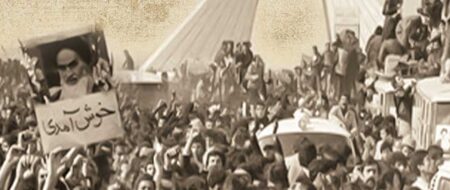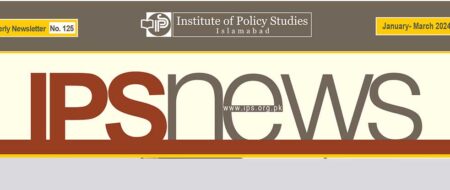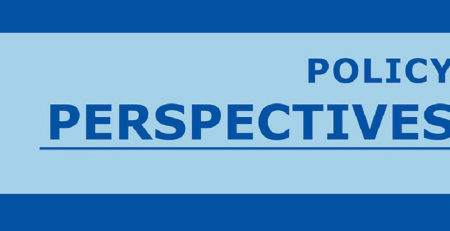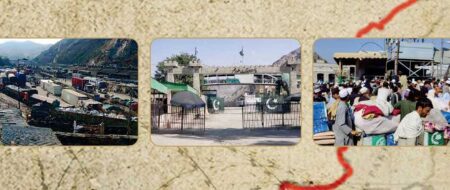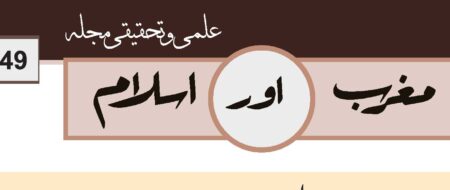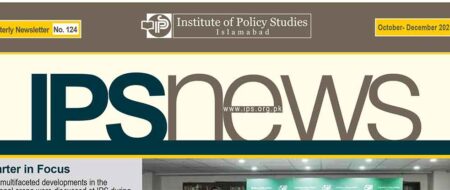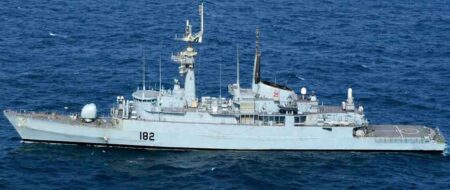Policy Perspectives (Vol 15, No. 3)
| Chief Editor: Khalid Rahman Volume: 15 Number: 3 Retail Price (Pak): PKR600 Annual Subscription: PKR1000 Export Price: $60 (per copy) Annual International Subscription: $120 |
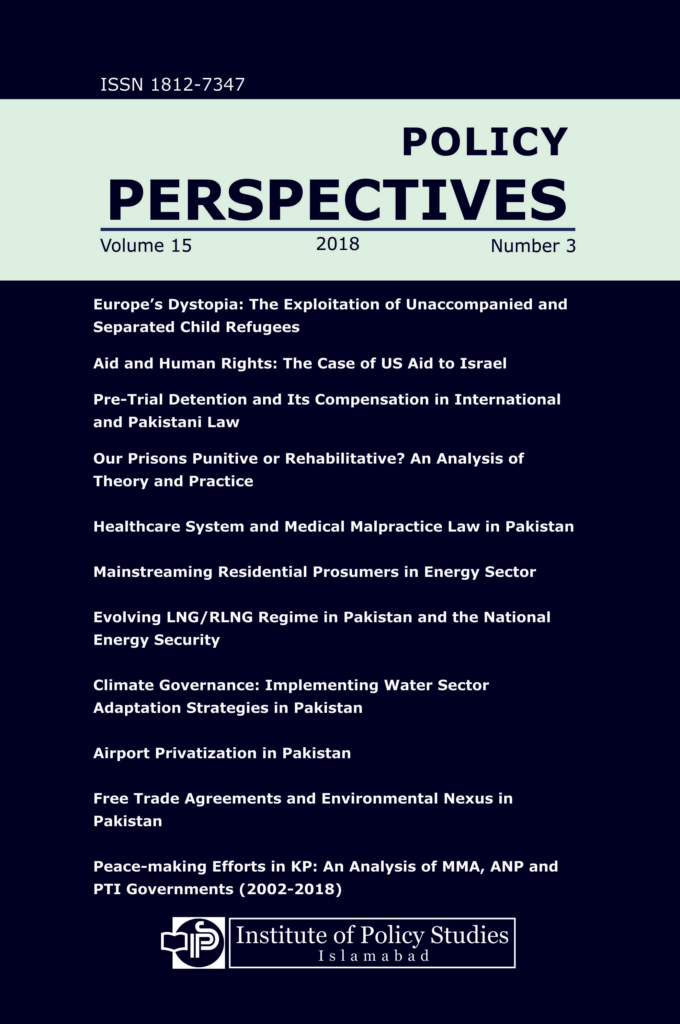 |
About the Issue
The latest edition of peer-reviewed IPS’ flagship journal Policy Perspectives – disseminating the research carried out by IPS and its associates on diverse range of current and evolving topics – is out now and is widely available for the readers in Pakistan and abroad.
The issue combines deliberations upon important global theoretical debates as well as discourses on current regional and international matters of significance.
The first article ‘Europe’s Dystopia: The Exploitation of Unaccompanied and Separated Child Refugees’, which is penned down by Dr Farhan Mujahid Chak, associate professor, Qatar University, Doha, seeks to highlight the exploitation of unaccompanied and separated child refugees in Europe, maintaining that unfortunately, EU has failed the obligations and tens of thousands of children are staying in appalling, exploitative and negligent conditions.
The paper ‘Aid and Human right ? The Case of US Aid to Israel’, which is written by Dr Murad Ali, assistant professor, University of Malakand, Khyber Pakhtunkhwa, examines the allocation of economic as well as military aid from the United States (US) to Israel and investigates whether the US has ever linked its aid to human rights performance in the case of the Jewish state.
The article ‘Pre-trial detention and its compensation: In International and Pakistani Law’ is contributed Tauqeer Hussain, a research officer at IPS, looking into the convergence and divergence of Pakistani and contemporary legislation on the issue of pre-trial detention and its compensation. The paper suggests reforms through minimal use of pre-trial detention and by providing compensation to the innocent victims of pre-trial detention.
The piece ‘Our Prisons Punitive or Rehabilitative? An Analysis of Theory and Practice’ identifies the gap between theory and practice in terms of prisoners’ reintegration/rehabilitation through literature-based research with focus on Pakistan. It is authored by Rais Gul, a lecturer of Sociology at the Islamia College, Peshawar.
Healthcare System and Medical Malpractice Law in Pakistan’ by Rukhsana Shaheen Waraich, PhD research student, Faculty of Shariah & Law, International Islamic University Islamabad, maintains that Medical practitioners can be tried under charges of criminal liability too but courts are very reluctant to haul doctors under Pakistan penal code and want to contest such cases under civil liability. In this article it is argued that a separate law should be devised for medical malpractice keeping in view the need and current practices of legal and healthcare systems.
The paper ‘Mainstreaming Residential Prosumers in the Energy Sector’ by Naila Saleh, junior research officer, IPS, advocates the need for a prosumer-friendly energy framework. In doing so, it first analyses the concept of energy presumption, potential of solar energy, and the scope of residential prosumers. It pursues to critically analyze the prevailing legal framework pertaining to solar prosumers in the country. And finally, propose recommendations for plugging the stated barriers and moving toward a friendlier framework.
The piece ‘Evolving LNG/RLNG Regime in Pakistan and the National Energy Security’ by Abdul Basit Qureshi, a PhD Scholar at the National Defence University, Islamabad, aims to review the regulatory framework of LNG/RLNG for creating enabling environment for import, re-gasification, sale and marketing in Pakistan. The focus of this paper is on the supply side of energy, public and private gas utilities relation with respect to LNG, natural gas market liberalization, and its comparative analysis with other fuel prices.
Written by Kanwar Muhammad Javed Iqbal, PhD Scholar at Department of Environmental Science, International Islamic University, Islamabad, and Senior Researcher at National Institute of Maritime Affairs (NIMA), Bahria University, Islamabad, and Muhammad Irfan Khan, Professor at Department of Environmental Science, International Islamic University, Islamabad, the article ‘Climate Governance: Implementing Water Sector Adaptation Strategies in Pakistan’ addresses the strengths, weaknesses, opportunities and threats (SWOT) of Pakistan’s current climate governance in the context of institutional arrangements at federal, provincial and diplomatic levels, in relation to implementation of water sector adaptation strategies as outlined in FICCP.
‘Airport Privatization in Pakistan’examines the airport infrastructures in Pakistan in comparison to other airports in the world while giving valuable suggestions alongside for their improvement. The piece is co-written by Dr Irem Batool, assistant professor, Department of Management Sciences, COMSATS University Islamabad, Sahiwal Campus, Dr Ghulam Hussain, assistant professor, Department of Management Sciences, COMSATS University Islamabad, Lahore Campus and Dr Muhammad Abid, assistant professor, Department of Mechanical Engineering, COMSATS University Islamabad, Sahiwal Campus.
The article ‘Free Trade Agreements and Environmental Nexus in Pakistan’ – which is co-authored by Dr Aneel Salman, HoD, Management Sciences, COMSATS University, Islamabad, Bakthawar Sethi, a graduate student at COMSATS University Islamabad, Dr Faheem Aslam, assistant professor, Department of Management Sciences, COMSATS University, Islamabad, and Dr Tahir Kahloon, assistant professor, Department of Government and Public Policy, National Defence University, Islamabad – attempts to examine the relationship between Free Trade Agreements (FTAs) and carbon Dioxide (CO2) emissions in Pakistan. This research is helpful for policy makers to eliminate the negative impact by adopting appropriate policy instruments and hence promoting Pakistan’s trade in the international market.
The article ‘Peace-Making Efforts in Khyber Pakhtunkhwa: An Analysis of MMA, ANP and PTI Governments (2002-2018)’ is contributed by Muhammad Quraish, a PhD scholar at Pakistan Study Centre, University of Peshawar and Dr Fakhr-ul-Islam, professor and director at Pakistan Study Centre, University of Peshawar, assessing the effectiveness of the government of Khyber Pakhtunkhwa (KP) interventions vis-à-vis reducing and preventing terrorism through peacemaking initiatives during 2006-2016, while offering an array of recommendations to the KP government over the matter.
It is pertinent to mention here that alongside the printed copies, Policy Perspectives is also available online to the global audience through Pluto Journals on JSTOR (http://www.jstor.org/journal/polipers) and on Factiva and affiliated international databases through Asianet-Pakistan. Moreover, it is also indexed in International Political Science Abstracts (IPSA) database through both the print edition (published by Sage) and on the Ebsco and Ovid websites.
Contents
|
||
| Editor’s Note | ||
| Europe’s Dystopia: The Exploitation of Unaccompanied and Separated Child Refugees
Farhan Mujahid Chak, PhD |
||
| Aid and Human rights: The Case of US Aid to Israel
Murad Ali |
||
| Pre-Trial Detention and Its Compensation A study of International Human Rights Law and Pakistani LawTauqeer Hussain |
||
| Our Prisons Punitive or Rehabilitative? An Analysis of Theory and Practice
Rais Gul |
||
| Healthcare System and Medical Malpractice Law in Pakistan
Rukhsana Shaheen Waraich |
||
| Mainstreaming Residential Prosumers in Energy Sector
Naila Saleh |
||
| Evolving LNG/RLNG Regime in Pakistan and the National Energy Security
Abdul Basit Qureshi |
||
| Climate Governance: Implementing Water Sector Adaptation Strategies in Pakistan
Kanwar Muhammad Javed Iqbal, Muhammad Irfan Khan |
||
| Airport Privatization in Pakistan Irem Batool, Ghulam Hussain, Muhammad Abid |
||
| Free Trade Agreements and Environmental Nexus in Pakistan Aneel Salman, Bakhtawar Sethi, Faheem Aslam, Tahir Kahloon |
||
| Peace-making Efforts in KP: An Analysis of MMA, ANP and PTI Governments (2002-18) Muhammad Quraish, Fakhr-ul-Islam |
||



